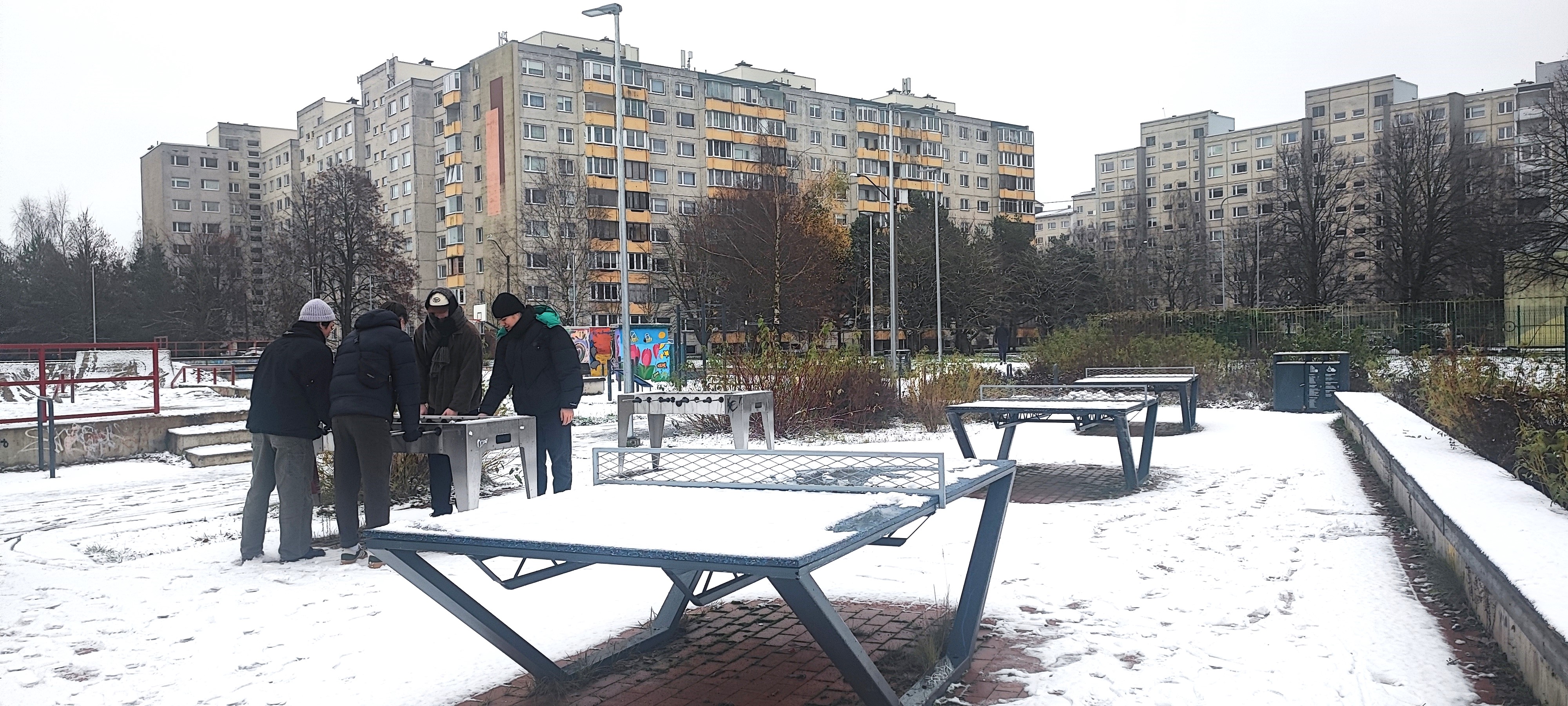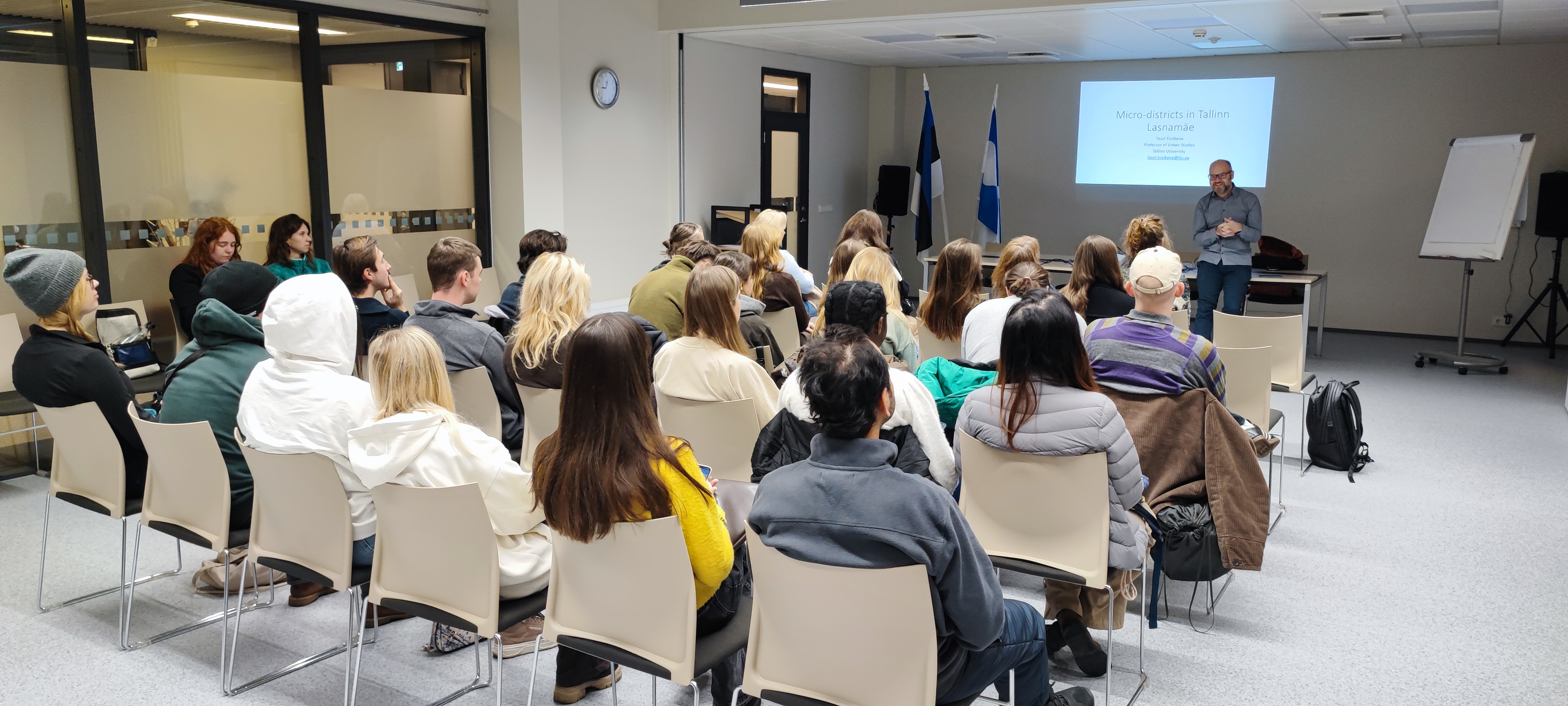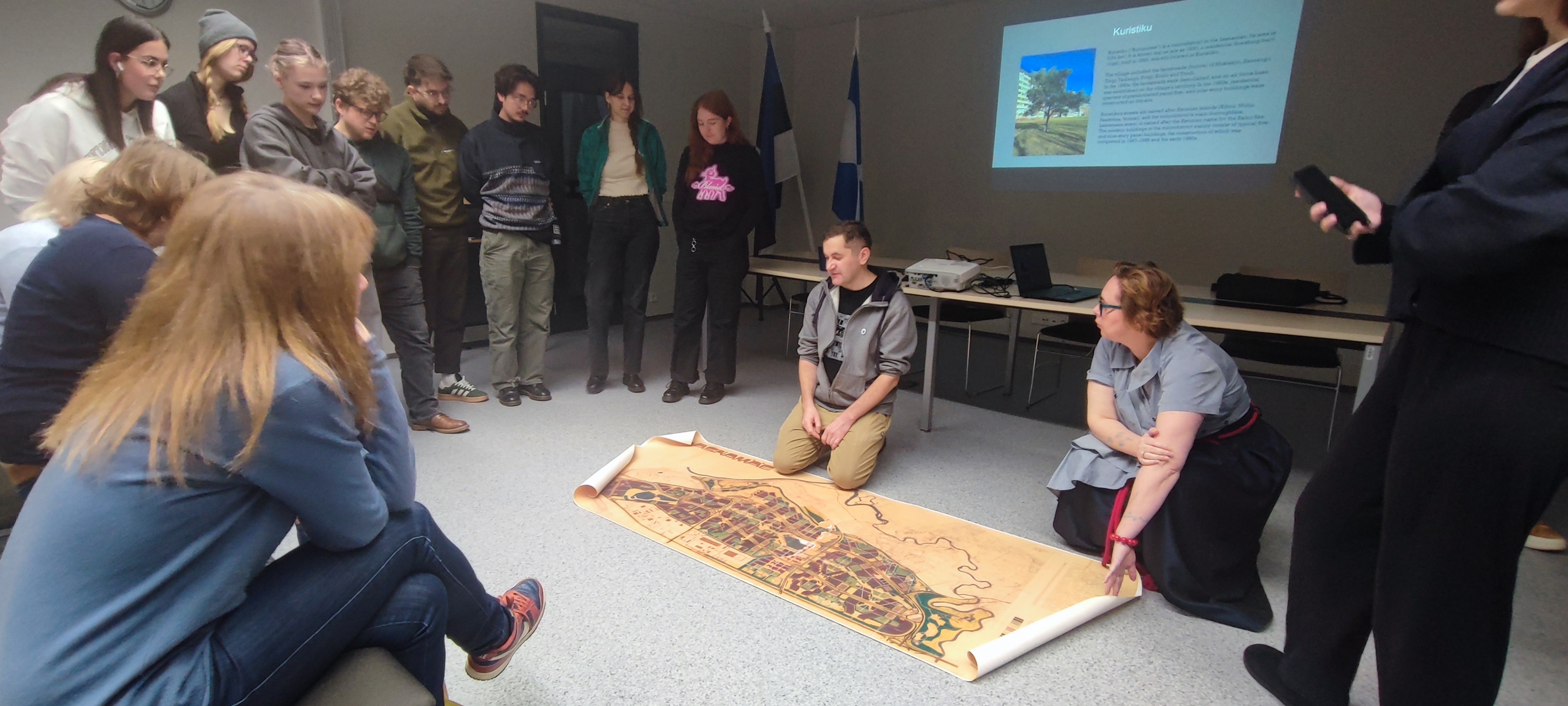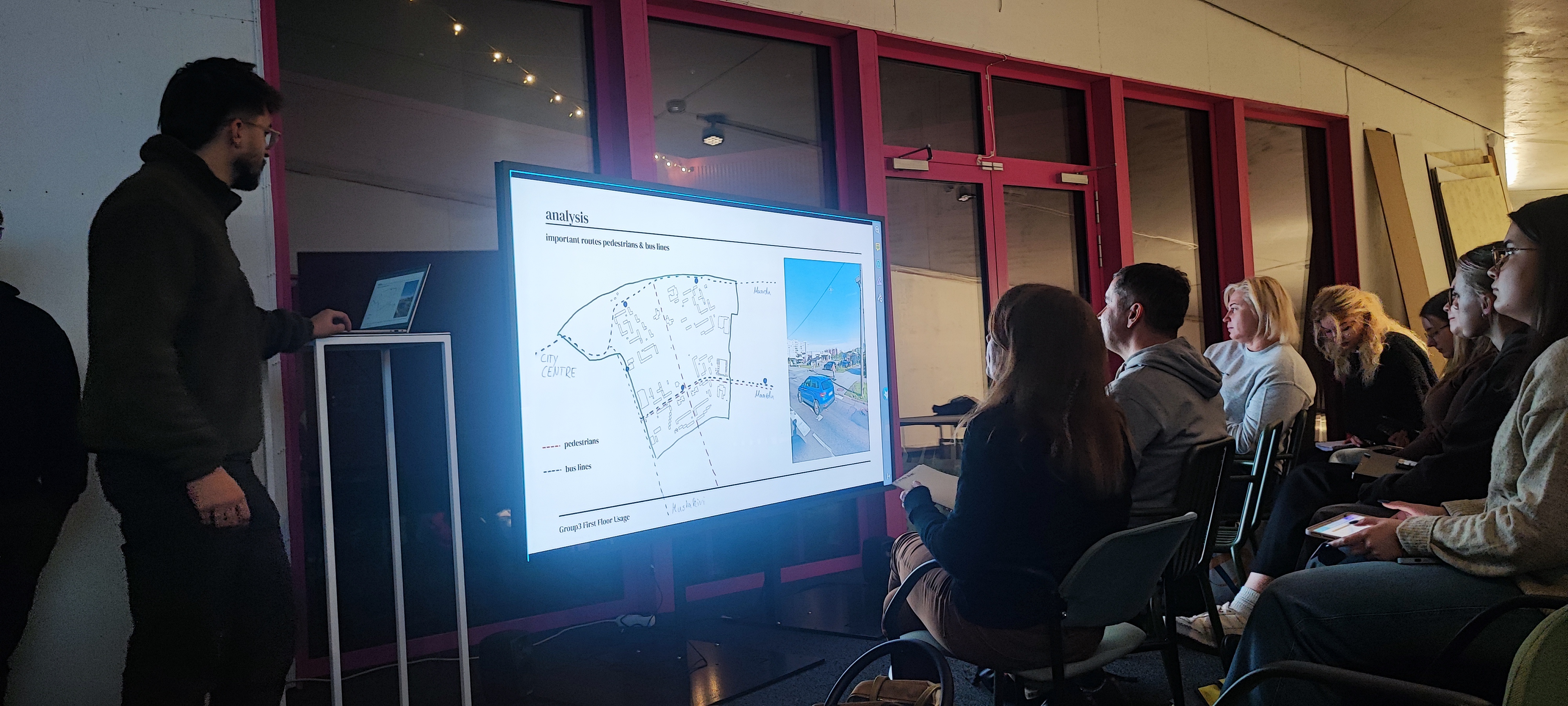Tallinn, 19–27 November 2025

From 19 to 27 November 2025, the cities.building.culture project, together with partner universities from Estonia and Ukraine, organized the international student workshop “Concepting Resilience in Kuristiku / Lasnamäe / Tallinn.” Hosted in cooperation with Tallinn University and Tallinn University of Technology, the workshop brought together students and teachers from Karlsruhe Institute of Technology, Tallinn University, Tallinn University of Technology, Odessa State Academy of Civil Engineering and Academy, Taras Shevchenko University of Kyiv, Lviv Polytechnic National University, State University Kyiv Aviation Institute and O.M. Beketov National University of Urban Economy to explore the challenges and future potential of Soviet-era mass housing Lasnamäe districts.
The student workshop formed an integral part of the broader cities.building.culture project research project on the resilience of Soviet housing areas in the Baltics. Using Kuristiku, one of the northern micro-districts of Lasnamäe, as a case study, students examined how demographic change, housing demand, socio-economic dynamics, and climate adaptation influence the long-term sustainability of post-Soviet neighborhoods.
Over five intensive working days, participants combined lectures, guided site visits, mapping exercises, and group work to understand the spatial, social, and ecological layers that shape Kuristiku. Experts from the Municipality of Tallinn, Tallinn University, Lasna!dee NGO, and the Lasnamäe Pavillon provided insights into the planning history, current development strategies, and local community initiatives in Lasnamäe.

The workshop unfolded in two phases.
Analysis and Exploration:
Students documented the district’s urban structure, public spaces, ecological networks, and socio-cultural context, identifying both qualities and deficits.

Concepts and Strategies:
Building on Tallinn’s 2035 development goals: 15-minute city, green mobility, climate adaptation, biodiversity, and resilient communities, teams developed initial scenarios and conceptual approaches for Kuristiku’s future transformation. Proposed directions ranged from strengthening existing assets and enhancing everyday functions to improving seasonal comfort, expanding blue–green networks, and envisioning infill development for a more diverse housing mix.
The final presentations took place at the Lasnamäe Pavilion, where students showcased their findings through analog drawings and conceptual diagrams.

The workshop demonstrated how cross-university cooperation and multidisciplinary perspectives can foster new visions for post-Soviet urban districts facing structural aging, social fragmentation, and climate challenges. Kuristiku served as a compelling testing ground for imagining resilient, inclusive, and future-oriented neighborhoods, grounded both in local realities and broader urban transformation strategies.
Download Results of the Workshop Download Student Workshop
- Presentation at the Conference “Contemporary Challenges and Prospective Directions for Innovative Urban Development” in Odesa (Online)
- CBC Talks 5 - Oleksandra Nenko, University of Turku
- Urban Resilience and Built Heritage: International Seminar at Yerevan State University
- Daugavpils fieldwork in October 2025: governance, care, and shared spaces







